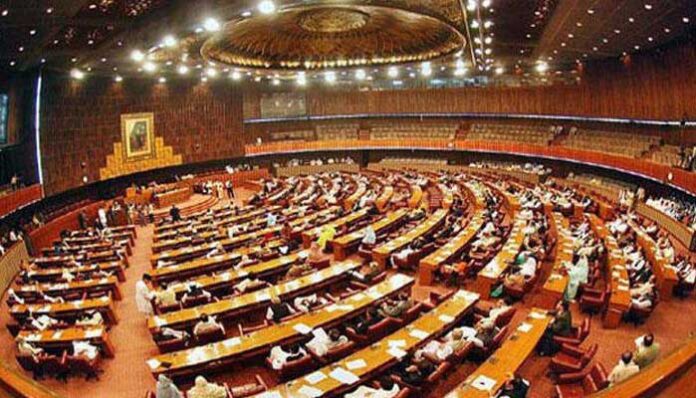Staff Report
ISLAMABAD: The National Assembly Monday unanimously approved the government’s much-needed Finance (Supplementary) Bill 2023 or ‘mini-budget’ — a move mandatory for seeking $1.1 billion tranche of the International Monetary Fund (IMF) loan.
Earlier in the day, State Minister for Finance Aisha Ghaus Pasha Monday said the Finance (Supplementary) Bill 2023 was likely to be approved yesterday by the National Assembly.
The minister added that the government has decided to get the mini-budget approved by the lower house today. It should be noted that it has already been approved by the Senate by a thin margin.
“Virtual discussions with the International Monetary Fund (IMF) are ongoing and talks will also take place today,” the minister said while speaking to journalists in Islamabad.
Pasha hoped for a staff-level agreement to materialise with the IMF soon. “Matters with the IMF are progressing in a positive direction. A further delay in the agreement is unlikely.”
Dar tabled the bill in the National Assembly and Senate on February 15 with budget proposals presented seeking to fulfil the prerequisites for unlocking the crucial $1.1 billion IMF loan tranche which will help cushion the country’s dwindling economy.
A session of the lower house, to debate over the finance bill, was held on Friday (February 17); however, it was adjourned without voting after a brief debate on the budget proposals.
“The NA session has been adjourned to meet again on Monday, the 20th February 2023 at 5:00 pm,” it was announced on the official Twitter handle of the lower house.
Dar, while speaking to reporters after the session, said that he expects the bill to be passed in both houses by Monday or Tuesday as Senate Chairman Sadiq Sanjrani has “given us till Friday”.
Pakistan is in dire need of funds as it battles a wrenching economic crisis as the State Bank of Pakistan (SBP)-held foreign exchange reserves barely cover one month of imports.
Finance bill proposals: Increase in GST on luxury items from 17% to 25%; FED on business and first-class air tickets be increased to Rs20,000 or 50% — whichever is higher; 10% withholding adjustable advance income tax to be imposed on marriage halls; Increase in FED on cigarettes, soft and sugary drinks; FED on cement to be raised from Rs1.5 kg to Rs2 kg; Increase in GST from standard 17% to 18%; GST to not be imposed on essential goods — wheat, rice, milk, pulses, vegetables, fruits, fish, eggs, meat; BISP stipend to be increased; govt to allocate Rs400 billion for programme.




